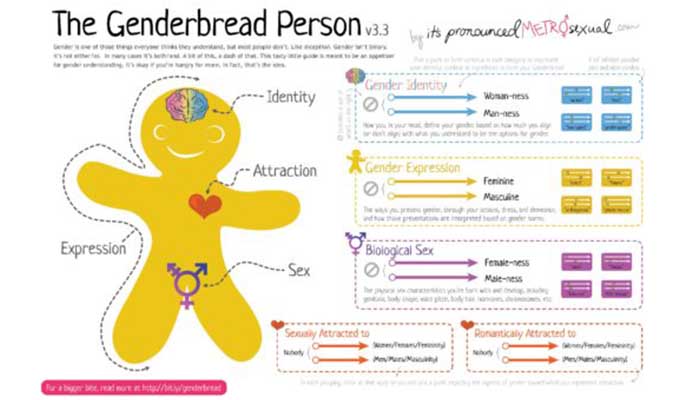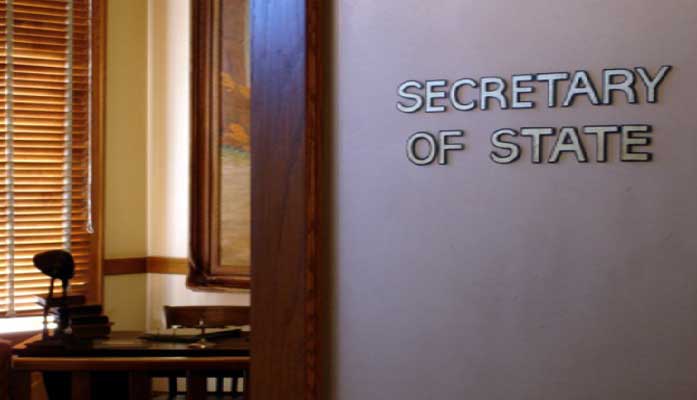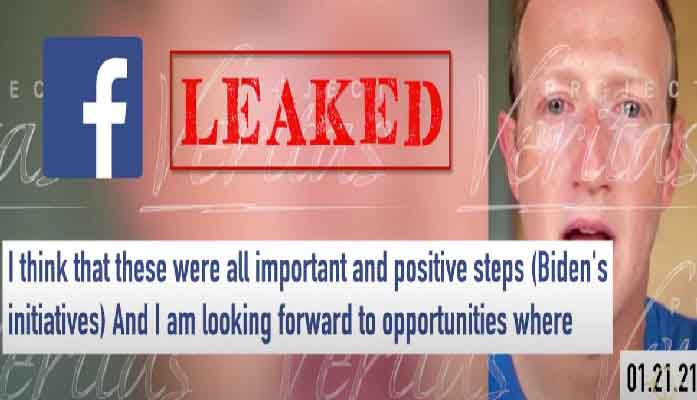
by Corinne Murdock | Mar 25, 2021 | Education, News
By Corinne Murdock |
A bill further regulating K-12 sex education courses moved closer to full passage on Wednesday. In a 6-4 party-line vote, the House Judiciary Committee determined that parents should have a greater say in what their kids learn when it comes to sex education.
The bill would require school boards to give parents advance notice of the education, acquire signed and written parental consent, as well as inform parents about their rights to opt into the course and review the materials and activities.
Currently, parents must opt their child out of the instruction. And, gender identity and gender expression weren’t included as topics requiring parental consent – just sexuality.
The bill would also limit schools from offering sex education, AIDS, and HIV instruction until students are in the fifth grade.
If passed, schools would have until December 15 of this year to change their courses to comply with the new law.
In the event that schools are modifying or drafting sex education courses thereafter, all corresponding committee meetings and proposed curriculum must be made public. The community would have 60 days and at least two public hearings to weigh in on the proposed curriculum.
The bill specified that schools aren’t required to offer sex education instruction.
For charter schools that do wish to teach about AIDS or HIV, they must ensure that the curriculum will be grade-level appropriate, medically accurate, promoting abstinence, discouraging drug use, adn dispelling myths about transmission. These schools would also be granted the ability to have the Arizona Department of Health Services or Arizona Department of Education (ADE) to review the materials.
Only four committee members voted against the bill: César Chávez (D-Phoenix), Melody Hernandez (D-Tempe), Diego Rodriguez (D-Phoenix), and Domingo Degrazia (D-Tucson).
Committee members Walter Blackman (R-Snowflake), Mark Finchem (R-Oro Valley), Beverly Pingerelli (R-Peoria), Russell Bowers (R-Mesa), and Quang Nguyen (R-Prescott Valley) voted in favor of it.
Senate Education testimonies from those urging passage of the bill asserted that parental rights are being violated daily, and that parents know what’s best for their children. They cited examples of schools telling parents and children that sex education classes are mandatory, refusing to share curriculum materials with parents, and circumventing parental notification on the implementation of new curriculum like “Genderbread.”
The ACLU argued that the bill violates the Equal Protection Clause, saying that LGBTQ students’ rights would be threatened. Other teachers testifying concurred.
During the final vote in the Senate, Democratic opposed empowering parents to choose whether their children received exposure to certain sex education courses.
Juan Mendez (D-) likened the negative commentary around parents’ lack of knowledge on the materials within school sex education courses as “scare tactics.”
“[S]tudents are going to hear and learn all about this stuff whether or not parents want them to. So, do you want it to happen alone on the internet? Or, in the safe embrace of a school setting with comprehensive, medically-accurate sex education?” asserted Mendez. “We should be providing youth with opportunities to increase their knowledge, explore values, and develop positive skills. Any of that would do so much to mitigate interpersonal violence and dating violence.”
State Senator Sally Ann Gonzalez (D-) accused the bill of targeting LGBTQ students, and limiting teachers and administrators from creating safe, inclusive environments. She went so far as to claim it could violate Title X and the Constitution, therefore opening up the state to legal battles.
“This bill is a sweeping bill that impacts the ability of teachers to speak about a wide range of issues impacting all students,” stated Gonzalez. “Everyone has a gender identity and a sexual orientation, so this bill would – could inhibit the profession of everyone’s experience of gender and romantic relationships in the world.”
State Senator Jamescita Peshlakai (D-) dismissed the examples provided by XX as an exception to the rule – a few, one-off incidents of the very worst types of education presented to students, not the norm.
The Senate passed the bill in a close, party-line vote on March 3.
Corinne Murdock is a contributing reporter for AZ Free News. In her free time, she works on her books and podcasts. Follow her on Twitter, @CorinneMurdock or email tips to corinnejournalist@gmail.com.

by Corinne Murdock | Mar 23, 2021 | Education, News
By Corinne Murdock |
A bill originally disguised as a nature-loving resolution passed by the Senate was rewritten completely through an amendment to qualify illegal aliens for in-state tuition. The same wouldn’t apply to nonimmigrant aliens.
“Notwithstanding any other law, a student, other than a nonimmigrant alien as described in 8 United States Code Section 1101(a)(15) […] is eligible for in-state tuition at any university […],” reads the amendment. “Persons without lawful immigration status are eligible for in-state tuition […]”
State Representative Daniel Hernandez, Jr. (D-Tucson) introduced the amendment. The proposed change comes into play as the border crisis continues to surge. Rural communities at Arizona’s border are pleading with federal authorities for help, as the number of migrants have more than doubled since Biden took office.
Yuma Border Patrol Special Operations Supervisor Vincent Dulesky reported one week ago that they are seeing surges of up to 100 illegal aliens at a time crossing the border.
“We’ve gone from months where we were seeing twenty [illegal aliens] a day, and now we’re seeing upwards to 450 a day,” said Dulesky. “We’re seeing groups of ten, twenty, thirty, all the way up to 100 [illegal aliens] coming through at a time.”
Their border patrol also noted that the border crossings aren’t occurring in the areas where previous President Donald Trump built miles of 30-foot-tall steel walls. The main flood of crossings have occurred where the Normandy fencing exists. The X-shaped barricades only serve to stop vehicles, not so much the foot traffic.
The amendment to S.C.R. 1046 would also loosen residency restrictions for American citizens. Other non-resident students could also qualify for in-state intuition, as long as they have attended any public or private high school option or homeschool equivalent in the state for at least two years, or graduated from any of those schooling options while physically in the state.
However, the amendment was clear in drawing the distinction between non-Arizona resident students and illegal alien students. Illegal aliens wouldn’t be held to those standards.
The amendment was scheduled to be considered on Tuesday by the House committee on education.
Corinne Murdock is a contributing reporter for AZ Free News. In her free time, she works on her books and podcasts. Follow her on Twitter, @CorinneMurdock or email tips to corinnejournalist@gmail.com.

by Corinne Murdock | Mar 19, 2021 | News
By Corinne Murdock |
Arizona’s sentiments on Big Tech’s influence are largely negative, according to a recent study of bipartisan voters across the state. What’s more, a majority of respondents want regulations placed on Big Tech immediately.
Data Orbital, a data analysis and political consulting firm, launched a study last week to get the pulse on Arizona’s perspective on Big Tech and current legislation to regulate it. Researchers surveyed 550 voters and found an abundance of concern over Big Tech’s influence. Over 80 percent of respondents agreed that Big Tech’s power over citizens’ lives is too great. Over 77 percent of individuals further characterized tech companies as self-interested monopolies opposed to small businesses and individuals.
Out of all respondents, nearly 64 percent believed that Arizona should regulate Big Tech’s influence. A few more of those respondents believed that Arizona’s legislature should take action as soon as possible -not wait for D.C. lawmakers to step in.
Specifically, respondents voiced support for HB 2005, a bill to break up Big Tech’s app payment monopoly. Many app platforms require developers to use their payment systems and pay a service fee ranging anywhere from 15 to 30 percent. The legislation would only target platforms that have over 1 million downloads a year, and extend to Arizona-based developers or users. As it stands, Apple and Google are the companies that would be affected by this bill.
Data Orbital published these findings as HB 2005 awaits consideration in the Senate. It passed in the House on March 3.
Big Tech was quick to respond to the threat posed by HB 2005. Lobbyists swarmed the Capitol as soon as they caught wind of State Representative Regina Cobb’s (R-Kingman) intent to introduce the bill. They have argued that the bill was unfair – it would make Apple and Google provide its services to developers and users for free.
Other Big Tech companies concurred with those lobbyist arguments. Twitter Head of Consumer Product Kayvon Beykpour asserted that the commission fees are necessary to run a smooth and ordered system.
“This isn’t just a highway tax,” stated Beykpour. “There’s a lot of cost and effort involved in building these ecosystems that allow you to accept payments, and there’s a lot of fraud or risk involved in the whole customer service flow around refunds. A lot of that is taken off [the consumer’s] plate.”
During the House floor’s final vote on the bill, Cobb’s rebuttal against these arguments was that the “big guys” aren’t having to bear the burden of these commission fees. She pointed out that Big Tech has a monopoly on the market, and noted that there weren’t any legislators in the room without an Apple or Android phone.
“If you have a space, you charge for the space. Well, the big guys are not getting charged for that space,” stated Cobb. “They get charged zero. These 16 percent get charged 30 [percent]. Anything with a million or less that [has] revenues gets charged 15 percent. But if you’re between that million – which is the very small guy – and now up there to that very top guy, that’s that 30 percent. So the equity is not there.”
Other proponents of the bill, such as the Coalition for App Fairness (CAF), add that the bill would allow businesses to innovate. They claim that Big Tech stifles healthy competition and growth.
“Through HB 2005, Arizona is building bipartisan momentum to provide more consumer freedom, lower costs, and increase developer’s ability to thrive and innovate,” stated CAF Executive Director Meghan DiMuzio.
Although HB 2005 has been assigned to committee in the Senate, no action has been taken yet.Corinne Murdock is a contributing reporter for AZ Free News. In her free time, she works on her books and podcasts. Follow her on Twitter, @CorinneMurdock or email tips to corinnejournalist@gmail.com.

by Corinne Murdock | Mar 11, 2021 | News
By Corinne Murdock |
The Arizona House is now considering whether petition signatures should be rendered void if the signer didn’t listen to or read the description. The Senate passed SB1531 on Monday in a tight, party-line vote of 16-14. State Senator J.D. Mesnard (R-Chandler) introduced the bill, with State Senator Vince Leach (R-Tucson) as the co-sponsor.
Petition descriptions can measure up to 100 words, per the law. If passed by the House, petition circulators would have to either offer to read the petition aloud to each potential signer, or allow the potential signer “sufficient time” to read the description. To further ensure that the potential signer is aware of this requirement, the petition itself must state that the description must be either heard or read. The circulator must also make the person signing aware of that requirement. Circulators would also be required to ask the individuals to confirm that they heard or read the description, as well as that they understood the description before signing.
In the event that an individual doesn’t hear or read the description, then the circulator would be required to void that signature. The Secretary of State would review the submitted petition and remove all voided signatures from it.
Although the bill didn’t mention any repercussions or further checks in place that would apply to circulators who don’t follow it, current law does require that circulators sign an affidavit swearing to the validity of the petition signatures.
One failed amendment by State Senator Juan Mendez (D-Tempe) would have extended the reach of the proposed bill to include petitions for nominating candidates.
During the Senate Government hearing, Mesnard explained that this bill is necessary because petitioners will lie to signers about what their petition constitutes. He described the “common practice” of circulators employing a sort of bait-and-switch tactic, pressuring an individual to sign a petition they may not fully be in agreement with. Mesnard called the method a “drive-by signature gathering.”
“They only know what the petition gatherer tells them. So what this is saying is that they’ve got to tell them what’s in it, like, read the summary not, you know, give their own spin on the thing,” explained Mesnard.
Arizona already requires that petition circulators disclose whether they are paid or not. However, there aren’t laws preventing circulators from unintentionally or intentionally misleading potential signers on what a petition actually constitutes.
Opposition to the bill argued that it created unnecessary hurdles for citizens to engage in the legislative process.
During the final vote, State Senator Jamescita Pehlakai (D-Window Rock) stated that this bill would pose obstacles to democracy. She cited the hardships imposed to get petitions to citizens in districts such as hers, which would take a significant amount of time to travel. Pehlakai added that non-English speakers might have issues with understanding, reading, or listening to the description.
“This is one of those bills that I guess in seeking to have folks be informed of what they’re signing actually does the exact opposite,” stated Pehlakai. “A lot of the people are really informed, so when they see me with my table and my canopy. They might already know the issues and want to sign. This would take so much more time depending on what needs to be read to them[.]”
State Senator Kirsten Engel (D-Tucson) suggested that reading or hearing the description wasn’t necessary for a voter’s understanding. She stated that this bill would come across as lecturing the voters and “treating them like two-year-olds.”
“I find that very paternalistic. It’s not up to us to decide when a voter has sufficient information about something, and it’s certainly not up to us to deputize the circulator to make that determination,” stated Engel.
Steele alluded that this bill to require more information be presented readily to potential petition signers imposed limitations on individuals’ ability to vote.
“So, this morning I heard the words of President Joe Biden. And, they’re so beautiful and so simple, and usually some of the wisest things we hear come in a very simplistic phrase,” stated Victoria Steele (D-Tucson). “‘If you have the best ideas, you have nothing to hide. Let more people vote.’”
The House is now considering the bill. It was assigned to committee on Wednesday.
Corinne Murdock is a contributing reporter for AZ Free News. In her free time, she works on her books and podcasts. Follow her on Twitter, @CorinneMurdock or email tips to corinnejournalist@gmail.com.

by Corinne Murdock | Mar 7, 2021 | News
By Corinne Murdock |
In the opening lines of a behemoth post-election analysis, Time Magazine tipped their hats to the “business titans” for their help in securing the election for President Joe Biden.
Amongst those titans are the ones controlling a majority of modern social interactions, transactions, and entertainment – Big Tech.
Arizona Free Enterprise Club President Scot Mussi stated that Democrats have become the home party for Big Tech.
“In general, everybody’s frustrated and angry about what’s going on here. Everything’s clearly to silence and target conservative ideologies and beliefs. The Democrat Party has become the party of Big Tech, and Big Tech is gladly going along with them because they share their beliefs. I don’t think there’s been a silver bullet solution that anyone’s come up with.”
Mussi noted that these companies align with the Democratic Party because of where they originated and how their business models run.
“I think it was more so where it originated and located at. You saw this develop out of Silicon Valley, California. I also think that the success related to Big Tech wasn’t the typical small business startup. A lot of what exists is venture capital money. [Basically:] ‘we come up with some hot new idea, it doesn’t matter if we make any money on it but let’s grow this thing and turn around and sell it to make a profit.’ There’s no family-run businesses in tech. They’re generally all left-of-center. It drives the culture in these firms.”
Mussi attributed Big Tech’s sweetheart deal with Democrats for causing their party to flip their outward narrative when it comes to big business.
“Democrats live and breathe trashing the big guys. That’s been their bread and butter for 100 years, and now it’s been an open embrace by and large publicly,” stated Mussi. “[Big Tech is] accomplishing their goals – silencing conservatives.”
Zuckerberg pumped the Center for Technology and Civic Life (CTCL) with over $350 million for the 2020 elections. Those funds went on to the local elections offices in counties nationwide. Arizona received $5 million, with a $3 million chunk alloted to the county that handed Biden the state: Maricopa County.
Biden won Maricopa despite Trump netting around 400,000 more votes than in 2016. And, Biden received nearly 511,000 more votes than Clinton did in 2016, and over 740,474 more votes than Obama in 2012.
As previously reported, research indicated that CTCL funds swayed the election results in one political direction significantly.
The spending power of Big Tech moguls like Zuckerberg has influenced states to alter their voting systems and laws. Their millions go toward increasing voting turnout efforts in blue areas, while ignoring red ones.
Funding is just one part of their agenda. Big Tech also meddles with the manipulation of information to the public.
A whistleblower has been leaking video discussions from Facebook executives in which they admit to interfering with elections through the control of information – or, as the Vice President of Integrity Guy Rosen phrased it, “efforts to protect the election.” That information becoming transparent wasn’t approved by Big Tech, however. Within days, Twitter banned Project Veritas from their platform.
Silicon Valley has grown more sophisticated in their process of squelching any opposition of thought, especially concerning elections.
In what appeared to be a coordinated effort, some of the biggest players in Big Tech banished and dismantled an entire platform from online existence. Parler, marketed as a safe haven for conservatives and open dialogue, was targeted following the January 6 Capitol riot.
Over the course of several days, Parler was yanked from both Apple and Google’s app stores. Individuals who’d downloaded the app before this revocation were limited further, once both app hosts rendered Parler defunct through system updates. Then, Amazon stepped in and dealt the death blow: they removed Parler from their servers so users couldn’t even access the platform online.
Arizona legislators are approaching the Big Tech elephant with one-bite approaches. In this session, several bills propose solutions to scale back Big Tech’s influence.
Most recently, the House has passed a bill that would impact Big Tech’s funding of election offices. If passed by the Senate, the bill would likely scale back those partisan advantages gained from billionaires’ funding.
The House is also considering a bill currently that would loosen Big Tech companies’ grasp on the market. Naturally, lobbyists for Apple and Google took to the state capitol to work against the bill.
However, those are just a few measures that would curb Big Tech’s sway on the election. Mussi acknowledged that these state-level measures were a start, but indicated that the federal government would have to step in as well.
“The question is what you do about it and how you handle it. Because at the state level, I don’t know if there is a silver bullet.”
Corinne Murdock is a contributing reporter for AZ Free News. In her free time, she works on her books and podcasts. Follow her on Twitter, @CorinneMurdock or email tips to corinnejournalist@gmail.com.





